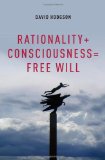recent book – ‘Your Emotional Type: Key to the Therapies That Will Work for You’
December 16, 2011
Your Emotional Type: Key to the Therapies That Will Work for You by Michael A. Jawer and Marc S. Micozzi (Healing Arts Press, 2011)
Product description from the publisher:
Your emotional type as the means to finding the right treatment for your chronic illness or pain
• Provides an easy questionnaire to find your emotional type
• Identifies the connections between emotional type and 12 common chronic ailments: asthma, allergies, chronic fatigue, depression, fibromyalgia, hypertension, irritable bowel, migraines, PTSD, psoriasis, rheumatoid arthritis, and ulcers
• Explains which of 7 mind/body healing therapies works best for each emotional type
Different people process their feelings in different ways–your emotional style is a fundamental aspect of who you are. It affects more than just your outlook on life; it can affect your well-being as well. Many chronic ailments are not the result of germs or genes but are rooted in our emotional biology. The link between emotional type and health explains why modern medicine–which views treatment as “one size fits all”–often fails to successfully treat chronic pain and illness.
Examining the interplay of emotions, chronic illness and pain, and treatment success, Michael Jawer and Dr. Marc Micozzi reveal how chronic conditions are intrinsically linked to certain emotional types and how these ailments are best treated by choosing a healing therapy in line with your type. Explaining the emotional ties behind the 12 most common chronic illnesses–asthma, allergies, chronic fatigue, depression, fibromyalgia, hypertension, irritable bowel syndrome, migraines, post-traumatic stress disorder, psoriasis, rheumatoid arthritis, and ulcers–the authors provide an easy assessment survey that allows you to identify your emotional type as well as the ailments you are susceptible to. Extending this connection between mind and body, they assess 7 alternative healing therapies–acupuncture, hypnosis, biofeedback, meditation, yoga, guided imagery, and relaxation techniques–and indicate which methods work best for each emotional type. Empowering you as a patient to seek out the therapies that will work best for you, this book offers a welcome path to effective pain relief and sustainable health.
See also: Book website







